Worst Dog Food for German Shepherd—Don’t gamble with your fido’s health, and learn about the ingredients to avoid in their diet!
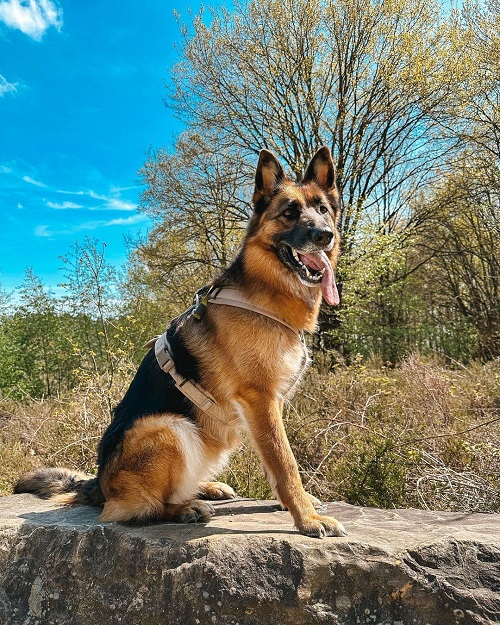
As a loving pet parent, you want to ensure your furry friend receives the best nutrition possible. However, there are certain foods that can be harmful to your beloved canine companion’s health. In this informative guide, we will uncover the Worst Dog Food for German Shepherd, focusing on ingredients that can lead to serious health issues or exacerbate existing conditions. Read on to learn more!
Check out 10 Delicious Low-Sodium Dog Treats here
What Do You Mean By the Worst Dog Food for German Shepherd?
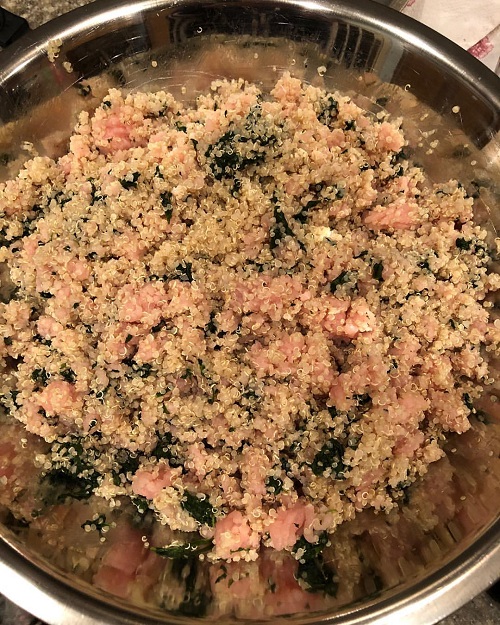
When we talk about the Worst Dog Food for German Shepherd, we are referring to the food options that contain ingredients that are harmful to their health. German Shepherds, like all dogs, have unique nutritional needs that must be met to maintain optimal health. However, this breed is predisposed to certain health issues such as hip dysplasia, allergies, and sensitive digestion, which makes them more vulnerable to the negative effects of poor-quality ingredients.
Harmful ingredients for German Shepherds can include artificial additives, fillers, and low-quality protein sources. These can lead to inflammation, exacerbate food sensitivities, and contribute to long-term health issues. Additionally, German Shepherds require a balanced ratio of calcium and phosphorus to support healthy bone development, and an improper balance can have detrimental effects on their skeletal structure.
How Toxic Are These Ingredients?
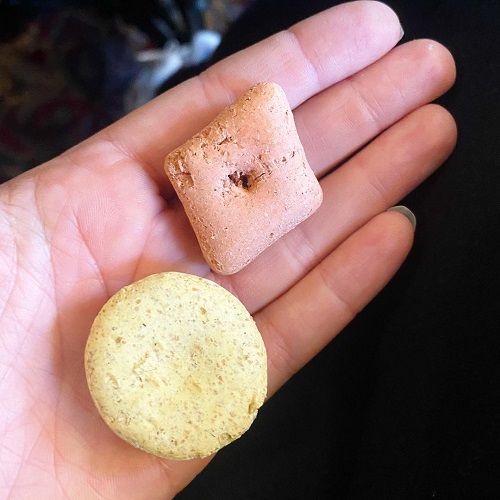
The toxicity level of harmful ingredients in dog food can vary depending on the ingredient and the amount consumed. Low-quality ingredients can cause digestive issues, allergies, and nutrient deficiencies and affect a dog’s overall health.
Some specific ingredients like onion, garlic, additive fillers, and chocolate can be highly toxic to dogs, even in small amounts, causing severe health problems and even death. Therefore, it’s crucial to avoid feeding your German Shepherd any food containing harmful ingredients and opt for high-quality, nutritious dog food.
Check out 10 Homemade Dogs Treats for Sensitive Stomachs here
Worst Dog Food for German Shepherd
1. By-Products
By-products are low-quality ingredients made from the leftover parts of slaughtered animals, such as organs and bones. They can contain harmful additives and are less nutritious than whole meats.
Feeding your German Shepherd dog food containing by-products can lead to digestive issues, allergies, and even kidney disease, which can be particularly harmful to this breed due to their predisposition to health issues.
2. Corn, Wheat, and Soy

These ingredients are common fillers in dog food and have low nutritional value.
German Shepherds may experience digestive problems, allergic reactions, and weight gain when consuming dog food containing these fillers. It is especially important to avoid these ingredients for those with food sensitivities or allergies.
Check out Can Dogs Eat Cornstarch | Is Cornstarch Safe for Dogs here
3. Artificial Preservatives

BHA, BHT, and Ethoxyquin are artificial preservatives used in some dog food to extend shelf life. They are linked to cancer and other health problems in dogs.
4. Artificial Flavors and Colors
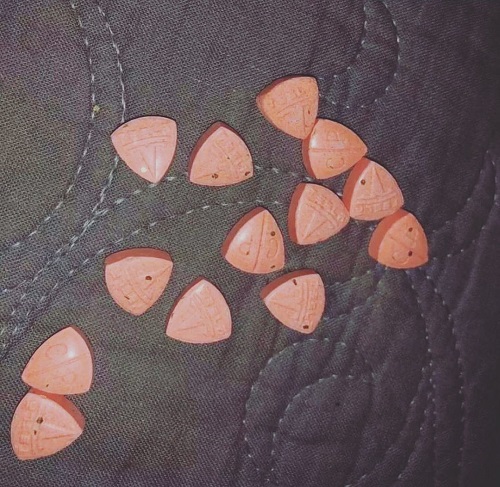
These are added to make dog food more appealing to dogs. However, they can cause allergies, digestive issues, and even hyperactivity.
German Shepherds are prone to skin issues and food sensitivities, making them more vulnerable to the negative impacts of these additives.
Check out Is Jasmine Rice Safe for Dogs? here
5. Grains
Grains such as rice, oats, and barley are safe for dogs in moderation, but some dogs may be sensitive to them.
Consuming dog food containing grains can result in allergic reactions, digestive problems, and weight gain, exacerbating existing health issues in this breed.
6. Animal Fat
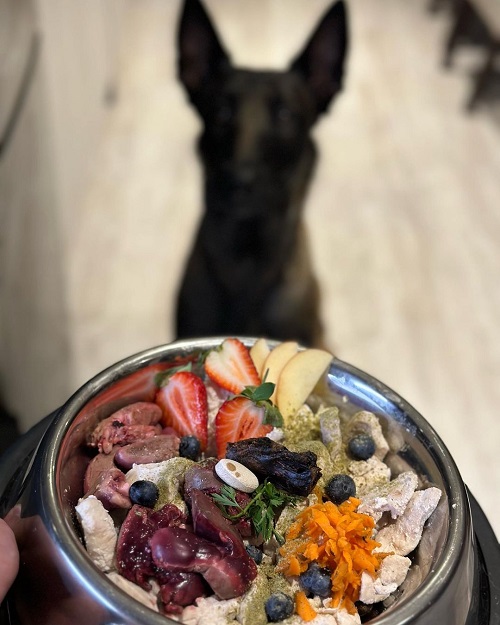
Animal fat is a generic ingredient that can come from a variety of sources, including roadkill and diseased animals. It can be difficult to determine the quality of animal fat, and it can contain harmful additives and contribute to obesity.
Check out Is Teriyaki Chicken Bad For Dogs? here
7. Meat Meal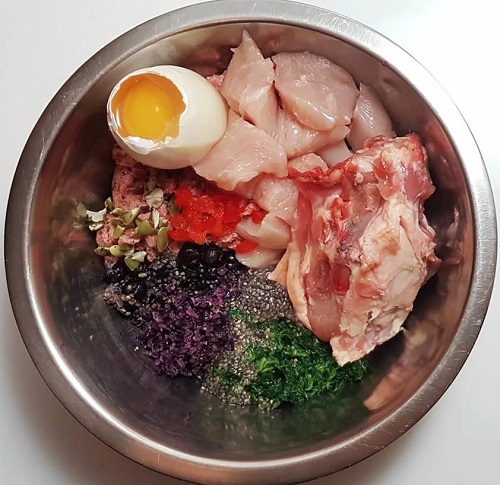
Meat meal is a low-quality protein source that is made from rendered animal parts, including bone, cartilage, and connective tissue. It can contain harmful additives and is less nutritious than whole meats.
8. Propylene Glycol
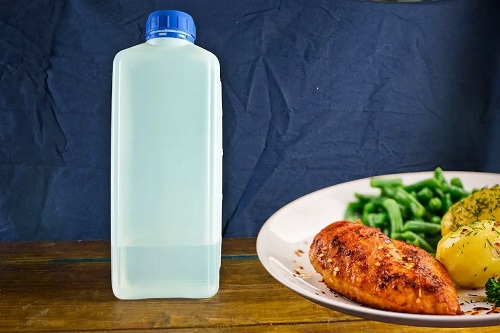
Propylene glycol is a synthetic chemical that is added to some dog food to keep it moist. It’s linked to anemia and can cause digestive issues and even kidney damage.
Check out Are Prawns Bad For Dogs? here
9. Carrageenan
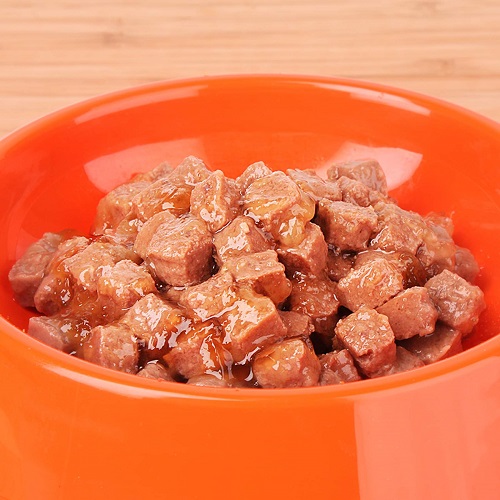
Carrageenan is a thickener that is derived from seaweed.
It has been associated with inflammation and digestive problems in dogs. Given the German Shepherd’s vulnerability to digestive issues, it is crucial to avoid dog food containing carrageenan.
10. Sodium Nitrite
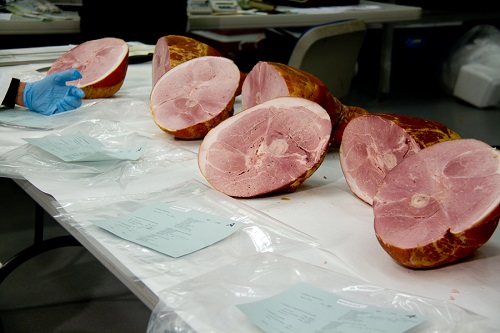
Sodium nitrite is a chemical preservative that is used in some dog food to give it a longer shelf life.
German Shepherds, with their predisposition to health issues, should avoid dog food containing sodium nitrite to reduce the risk of developing these problems.
Check out Are Fish Fingers Safe for Dogs? here
FAQs
1. What should I look for in high-quality dog food for my German Shepherd?
High-quality dog food for German Shepherds should contain whole meats, healthy fats, and essential nutrients, with no harmful additives.
2. How can I tell if my German Shepherd is having an allergic reaction to a specific food?
Signs of an allergic reaction to dog food include vomiting, diarrhea, skin rashes, and itching. If you suspect your dog is having an allergic reaction, consult with your veterinarian.
3. How can I ensure my German Shepherd is getting a balanced and nutritious diet?
You can ensure your German Shepherd is getting a balanced and nutritious diet by choosing a high-quality dog food that meets their specific dietary needs and consulting with your veterinarian for recommendations.
4. Can feeding my German Shepherd low-quality dog food cause long-term health problems?
Yes, feeding your German Shepherd low-quality dog food can contribute to long-term health problems such as kidney disease, obesity, and allergies.
5. How can I switch my German Shepherd to new dog food?
When switching your German Shepherd to a new dog food, do it gradually over a period of several days to avoid digestive upset. Start by mixing a small portion of the new food with the old diet and gradually increase the amount until your dog gets used to the new alternative.
6. Are all grain-free dog foods good for my German Shepherd?
Not necessarily. While some dogs may do well on a grain-free diet, others may have trouble digesting the high levels of protein and fat in these foods. It’s important to choose a dog food that meets your German Shepherd’s specific dietary needs.
7. Can feeding my German Shepherd table scraps be harmful?
Yes, feeding your German Shepherd table scraps can contribute to obesity, digestive issues, and even pancreatitis. Stick to feeding them a balanced and nutritious diet of high-quality dog food.
8. Should I consult with my veterinarian about my German Shepherd’s diet?
Yes, it’s always a good idea to consult with your veterinarian about your German Shepherd’s diet. They can provide recommendations on high-quality dog foods and help you choose a diet that meets your dog’s specific needs.
